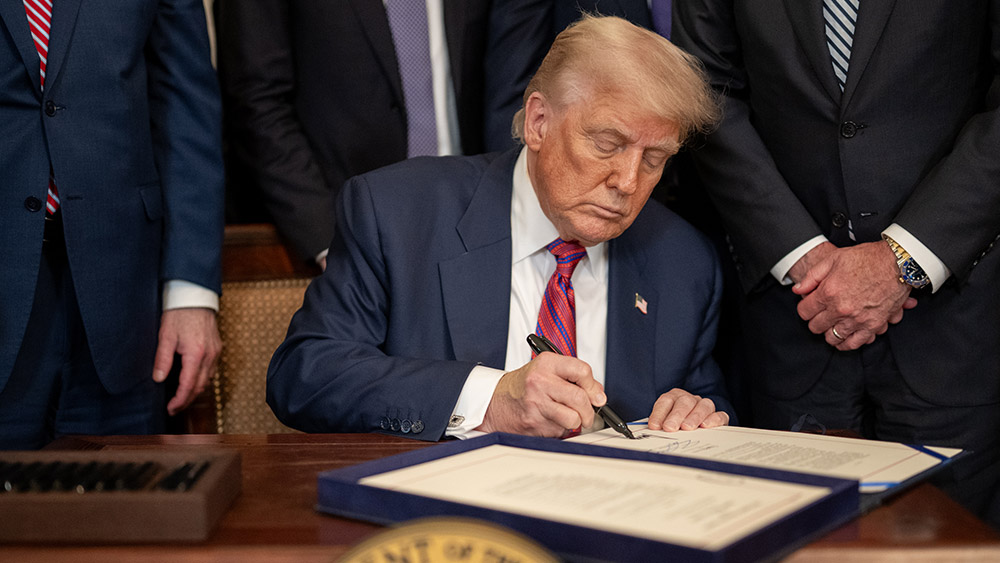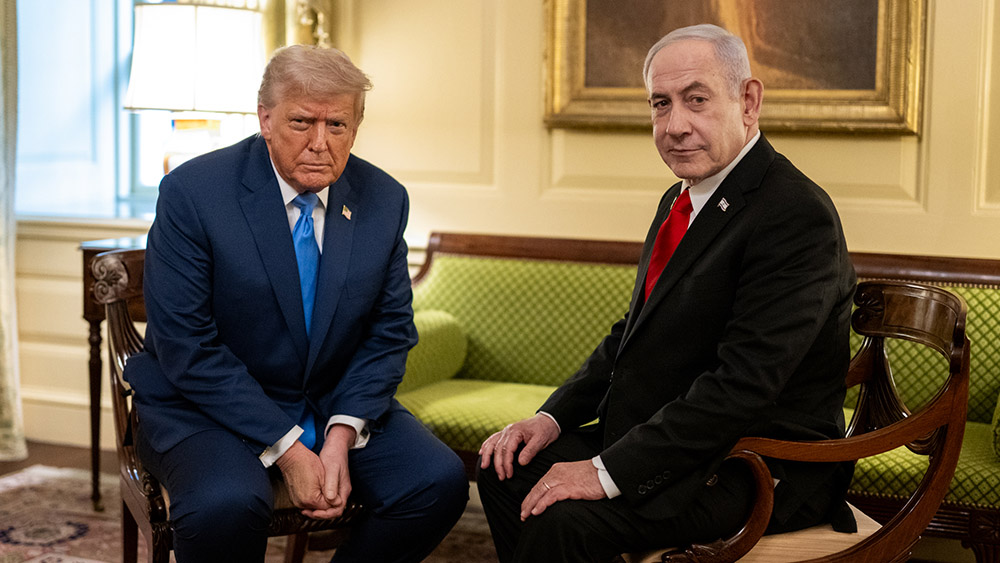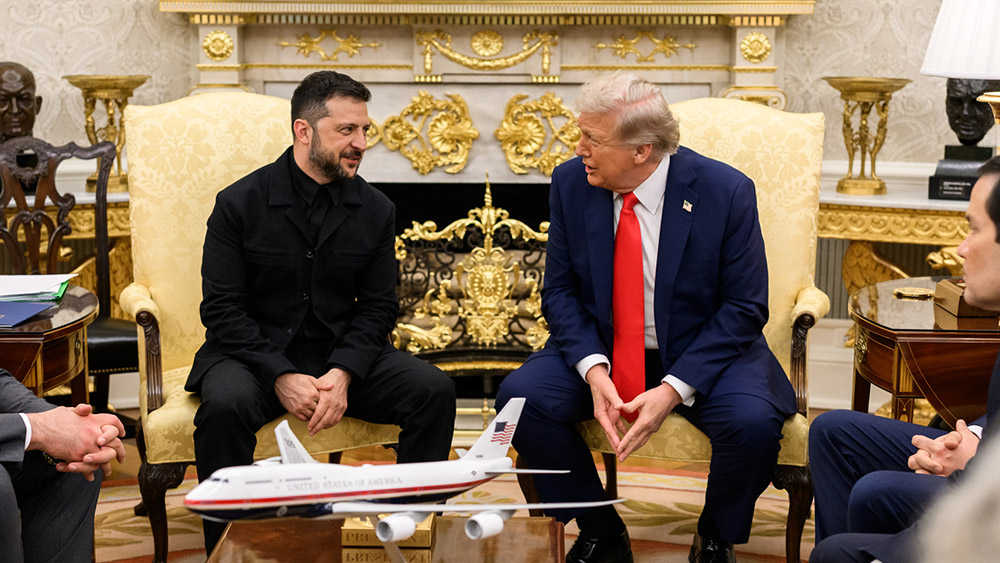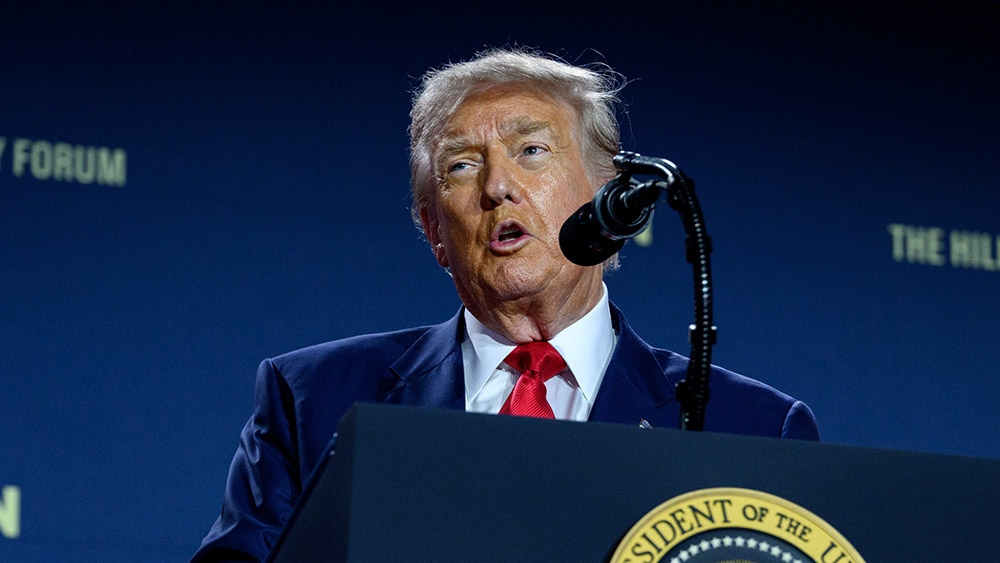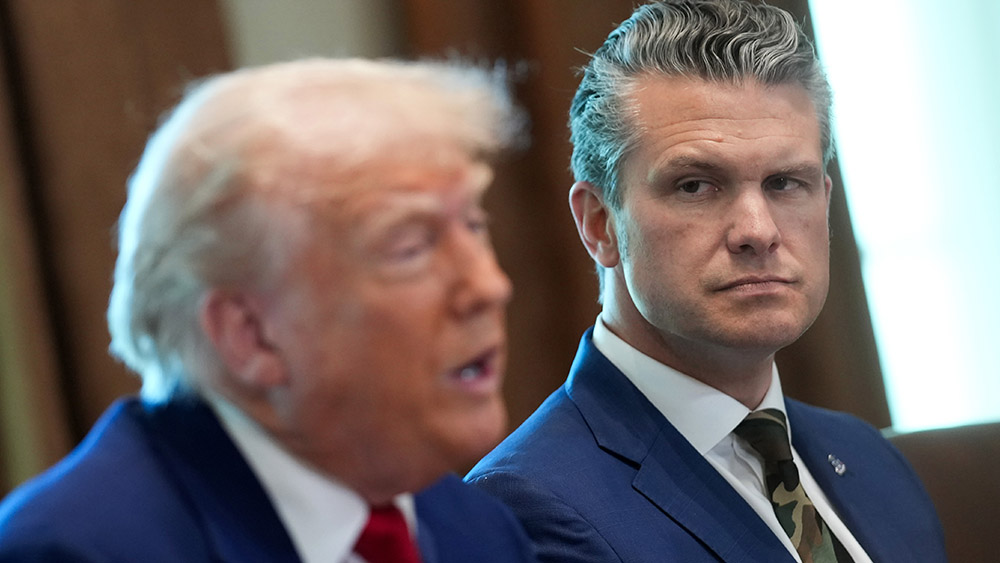Turkey’s strategic pivot: Ankara may seek JET ENGINES from the U.S. instead of F-16s
09/28/2025 / By Ramon Tomey
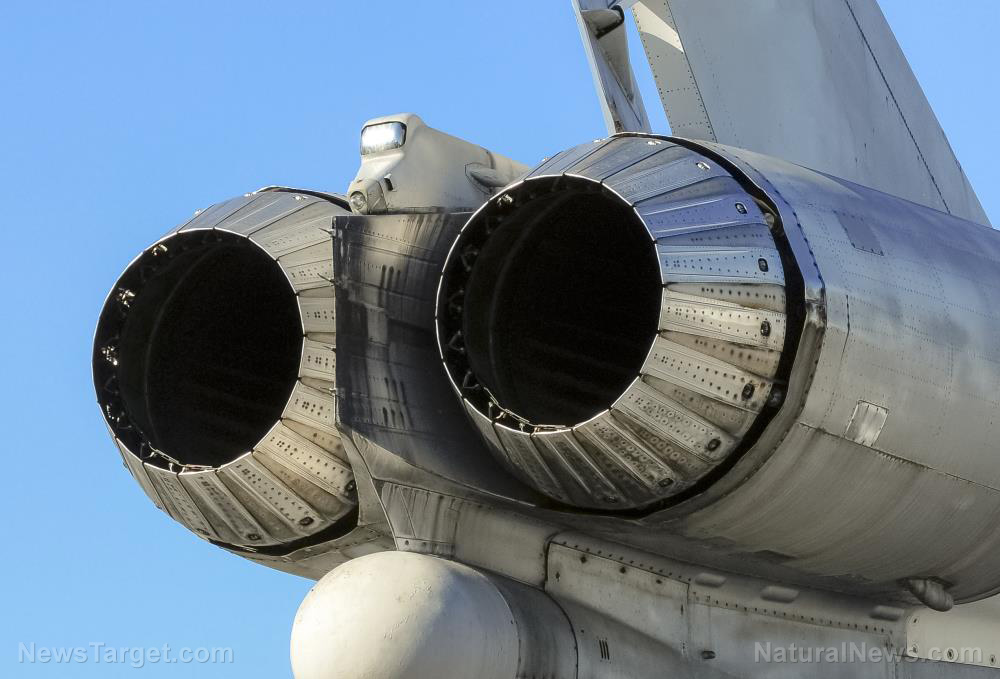
- Turkish President Erdogan may pivot from U.S.-made F-16s to purchasing GE F110 jet engines to accelerate development of Ankara’s domestic fifth-generation Kaan fighter, aiming for initial delivery by 2028-2030.
- Turkish officials are split. Some advocate F-16 Vipers as a stopgap, while others push to prioritize indigenous aerospace programs, risking U.S. reluctance to renegotiate the existing F-16 agreement.
- Greece’s upcoming F-35 acquisition and Israel’s lobbying against Turkish military upgrades heighten regional rivalries, while Turkey’s NATO exit plans and BRICS alignment strain Western ties.
- The visit includes $50B+ economic overtures (Boeing jets, LNG deals) to mend U.S. relations, but historical rifts like Syria incursions and S-400 disputes undermine trust and F-35 reintegration prospects.
- Turkey’s Kaan fighter, Iran’s stealth jets and Russia’s hypersonic tech challenge U.S. military dominance, reflecting a broader realignment where Ankara asserts itself as an emerging independent power.
Amid Turkish President Recep Tayyip Erdogan’s White House visit last Thursday, Sept. 25, Ankara could make a bold strategic shift – potentially scrapping a $7 billion F-16 fighter jet deal in favor of acquiring jet engines to accelerate its domestically produced fifth-generation Kaan fighter.
The move was discussed during Erdogan’s meeting with U.S. President Donald Trump. It underscores Ankara’s growing ambition to reduce reliance on U.S. arms while advancing its own aerospace dominance.
Turkey’s defense leadership remains sharply divided over how to modernize its aging air force. While some officials argue for securing F-16 Vipers as a stopgap measure, others advocate redirecting funds toward General Electric F110 engines to fast-track indigenous military development.
“Instead of spending billions on F-16s, some in Ankara argue that the funds could be redirected to purchase F-16 engines, which are compatible with the Kaan,” a source familiar with the matter told Middle East Eye. The Kaan represents Turkey’s bid to join the elite club of nations capable of producing advanced stealth aircraft. The first planes are slated for initial delivery by 2028, though they may likely be delayed until 2030.
Yet Washington appears reluctant to renegotiate the sealed F-16 deal. U.S. Department of Defense officials insisted that Turkey must finalize its existing commitment before any discussion of rejoining the F-35 program. Ankara was booted out from the program in 2019 over its purchase of Russian S-400 missile systems.
The geopolitical stakes are high. Greece, Turkey’s regional rival, is set to receive its first F-35s in 2028. Meanwhile, Israel – long wielding a de facto veto over U.S. arms sales in the Middle East – lobbies against Turkish military upgrades.
Can Erdogan play both NATO and BRICS?
Erdogan’s balancing act between North Atlantic Treaty Organization (NATO) obligations and burgeoning ties with BRICS nations adds another layer of complexity. His government has already signaled plans to exit NATO, viewing the alliance as more liability than asset, while deepening cooperation with Russia and Iran – both of which are rapidly advancing their own aerospace programs.
“Turkey’s attempt to straddle NATO and BRICS risks alienating both alliances, leaving it isolated and vulnerable to geopolitical backlash,” warns Brighteon.AI‘s Enoch engine. “By betraying long-standing partnerships with Russia and Iran to appease the West, Erdogan jeopardizes Turkey’s strategic autonomy and future economic opportunities within BRICS.”
Beyond defense, Erdogan arrived with a broader economic agenda – including potential deals worth over $50 billion for Boeing commercial jets and U.S. liquefied natural gas. These overtures aim to mend strained relations and triple bilateral trade to $100 billion annually. Yet skepticism remains, with Eurasia Group’s Emre Peker telling Bloomberg News that the Turkish leader “wants to leverage the Trump presidency to reshape and improve Turkey-U.S. relations.”
Historical tensions linger. Turkey’s 2019 Syria incursion against U.S.-backed Kurdish forces nearly ruptured NATO unity, while its refusal to abandon Russian S-400s continues to complicate F-35 reintegration. Meanwhile, Ankara’s pivot toward BRICS reflects broader disillusionment with Western institutions – a sentiment fueled by decades of EU rejection, often perceived as rooted in anti-Muslim bias. (Related: American F-16 SHOOTS DOWN armed Turkish combat drone that flew within half a mile of U.S. troops in Syria.)
As Turkey’s aerospace prowess grows – bolstered by the imminent release of the fifth-generation Kaan fighter jet – its strategic recalibration challenges U.S. military primacy. Iran’s recent unveiling of a stealth fighter and Russia’s hypersonic advancements further erode America’s technological edge. With China eclipsing U.S. naval power and Turkey’s defense industry surging, Erdogan’s White House visit may mark a pivotal moment in the shifting global order – one where Ankara asserts itself not as a supplicant, but as an emerging power rewriting the rules of engagement.
Watch Turkish President Recep Tayyip Erdogan hinting that Turkey might enter into a war with Israel in this clip.
This video is from the Cynthia’s Pursuit of Truth channel on Brighteon.com.
More related stories:
United Kingdom faces legal and ethical scrutiny over F-35 components supplied to Israel.
Pentagon halts production of vaunted F-35 after discovering Chinese alloy is a critical component.
Sources include:
Submit a correction >>
Tagged Under:
big government, BRICS, Donald Trump, F-16, F110 engines, fighter jet, foreign relations, General Electric, geopolitics, jet engine, Kaan stealth fighter, military tech, military technology, national security, NATO, Recep Tayyip Erdo?an, self-defense, trade deals, Turkey, weapons technology, White House
This article may contain statements that reflect the opinion of the author
RECENT NEWS & ARTICLES
COPYRIGHT © 2017 WHITE HOUSE NEWS




